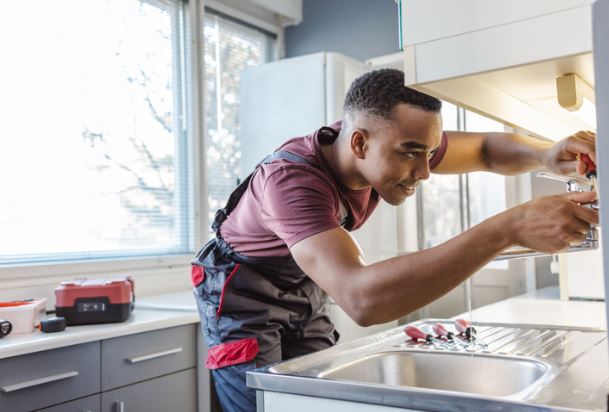Common Winter Plumbing Problems in South and North Carolina

Winter in the Carolinas might not bring blizzards like the Northeast, but South and North Carolina homeowners can still face serious plumbing problems when temperatures drop. Cold snaps can put unexpected strain on pipes, water heaters, and drains—often leading to frozen lines, burst pipes, and costly repairs.
But there are solutions to avoiding unwanted plumbing mishaps! In this quick guide, we'll answer common winter plumbing questions and share simple steps you can take to protect your home this season.
What Are the Most Common Plumbing Problems in Winter?
As you know, winter can bring many challenges to homeowners. When cold snaps hit the Carolinas, the freezing temperatures not only bring us chills, but they can also cause unwanted damage to our pipes and plumbing. Generally, pipes can begin to freeze when temperatures drop to 32 degrees F or below. These freezing temperatures can lead to:
- Frozen pipes
- Burst pipes
- Clogged drains
- Reduced water pressure
- Water heater damage
- Outdoor hose bib or sprinkler damage
- Long-term problems
And if you're wondering if pipes freeze in North Carolina, the answer is yes, they do. However, if you prepare your home ahead of time with winter plumbing maintenance, you can help avoid major breakdowns and unwanted repairs.
Prevention Tips for Homeowners in SC & NC
Even though winters in the Carolinas are generally milder than in northern states, there is still a chance of below-freezing weather. Here's the good news: prepping your home now with winter plumbing tips can help avoid costly repairs later. Here are some preventative measures you can take:
Keep Indoor Temps Above 55°F
Even if you're away from home, keep your thermostat above 55°F. This ensures that pipes inside walls and cabinets—especially along exterior walls—stay warm enough to prevent freezing.
Insulate Exposed Pipes
Check on pipes in unheated areas such as basements, crawlspaces, attics, and garages. If they feel cold, wrap them with foam insulation or heat tape to keep water flowing when temperatures dip below freezing. Most local hardware stores should have these materials in stock.
Disconnect Garden Hoses
It's important to disconnect any garden hoses. If you leave them attached, water can get trapped in the line and possibly freeze and expand into the connected plumbing inside your home. Disconnect hoses, drain outdoor spigots, and consider installing insulated faucet covers for extra protection.
Let Faucets Drip
If the forecast calls for below-freezing temperatures, allow a small trickle of water to drip from faucets. The constant water movement makes it harder for ice to form inside the line.
Call Brothers for a Plumbing Inspection Before Winter
While you can follow preventive tips to keep your plumbing safe in winter, a professional plumbing check can find hidden risks—like small leaks, weak seals, or poorly insulated pipes—that you might not notice. If you have an issue, call to schedule a winter plumbing maintenance appointment before the seasons change.
An inspection in the fall can give you peace of mind all winter! Call Brothers today at 704-620-6252 to schedule your appointment.
